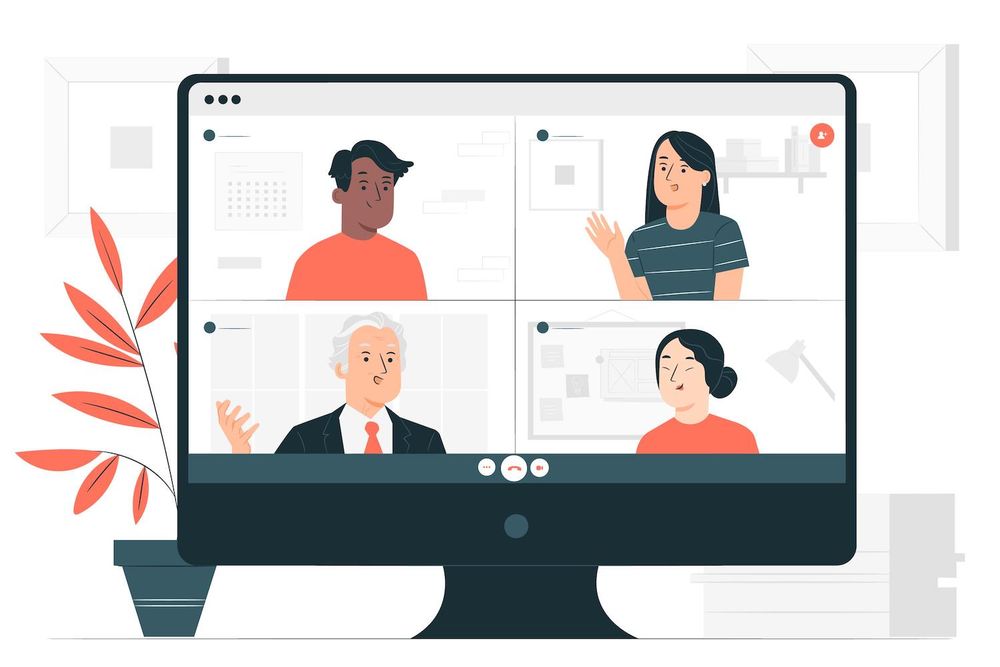Terms

"I was raised and born within Southern Vermont," starts Max Mackson of Maximilian Mackson, LLC. I attended homeschool up to high school. This provided me with the chance to use the computer. I learned HTML, CSS, and JavaScript which are the language of the internet, and then kept experimenting with other initiatives."
When he was a teenager, Max entered a play program. "I learnt to behave professionally. We were directed by a strict director, which I'm happy to have done because he taught me to be punctual and to ensure you're ready," he adds. Max's first IT work experience came around this time. "Between my junior and sophomore year in high school, I worked at a country club in the town. I worked there two times a week to update their website, and it was God horrible! They were using a bizarre third-party system which took about half an hour to do tasks that with WordPress could have been completed in only two minutes." he explains.
Meeting people face-to-face when fixing the tech certainly helped, he continues. "I'm focused on personal connections. I gain a great deal worth out of friendships. In the summer at the country club all was on high constantly. If the printer in the kitchen stopped working it was my responsibility to go through the room. The kitchen was hot and bustling, and everybody was running around me - we were 'in the zone' in the moment!"
Max enjoyed seeing first-hand his effects from his work and attempting to address the stressful relationship that we share with technology at times. "When I worked with others who were working with me, I would tell them 'Okay, I just pushed an update to this computer And I'd get to determine if it was helpful to them, or if they were confused. I would get to see the different perspectives and discover what people's reactions to technology are. A lot of IT folks will just affirm, "Oh, this is the way things are today; here's an update' and that irritates me. I love working with people."
Max discovered that having a good grasp in tech could make a difference to the lives of people. In the days of country clubs the reason for his dislike of printers beganto surface "They don't seem to perform when you need them to work!" he smiles. Much part of the time was spent repairing printers; working with hardware helped him understand system architecture "I ended up reworking each of their systems throughout the years. I continue to the work they do now," he adds.
Singing by himself
In terms of formal educational experience, Max went to Champlain College in northern Vermont but he was taught something different that the traditional curriculum. "I was one of a dozen information technology majors, which is really funny when you consider that while I was in school it was decided by the school that they were planning to end that major! They took us to a room and said"Hey, guys! so you're still going to have the option of graduating. However, we won't provide your degree after this year'!"
Max began working in audio-visual production because of his background in theater. "That involved more fixing technology because all the classrooms depended on having an electronic computer, projector and projection screen" he continues. "When things went wrong, we would walk into these full classrooms with people and everyone would stare at us. Then we'd be seated at a table to swap out a projector bulb!"
"I was in college just two years. I dropped out because I felt it was very slow. The world of the internet moves so quickly, that when you finish up learning something in college the subject is outdated on the market. The professors who have to study and push that out to the students, it can take a while," Max adds.
Naturally, the rate of innovation hasn't slowed and in fact, has increased and the speed and purpose of higher education eventually resulted in Max to create the company he owns. One reason why he left was because his outlook for the prospects was not as clear as that of his college: "They liked to say that they had 99percent of their students a job right out of college - which is fantastic, however, they go hardcore on making sure everyone gets the corporate environment. I love working with individuals, but not as a result of that; it did not appeal to me."
Then Max went out by himself and began searching to find his first client. Max had recently attended an online course and the person who was running the event had requested testimonials. Max remembers: "I sent one in, just thinking I'd practice my writing skills. However, at the bottom I added 'PS If my abilities could ever be of use to you, let me know'. he replied, 'Well, what can you be doing?'"
Max went through the site and wrote a bulleted list of improvements: "No BS, just clear and concise" and Max got a quick answer: "Text me' along with a number. "That was how I got the job I wanted. To this day, he's a good client!" Max smiles.
Services and projects
"You are surrounded by all the different pieces of software that power your business, but none of it's talking to one another. I'm the guy who gets the software to talk flawlessly," Max says. He says this makes one more robust system, that can be used to accelerate business growth as well as save energy and time. "I consider myself to be a systems architect and integrator. A lot of people even my parents simply call me the IT guy!" he jokes.
Max Explains that a typical user's tech stack can comprise of 100 parts of software in separate silos. "You need to bring the pieces together so that they can communicate with each other. I began working with a handful of customers on Web design, then I started to work on integration on April 20, 2021. one of my customers wanted to establish a member-paying exclusively community."
Max had been working with that client, a health influencer and evangelist for a few months and was having a great time. Max had no prior experience with membership but it was clear to him exactly what the issues were going to be. "I am now researching a bunch of membership software providers. I've got a method of researching where I look at various lists of the most effective software and I'll correlate them."
Max selects the software that will provide the most user-friendly experience in both an admin as well as a user's perspective, so that customer support is less time-consuming over the long term. The simplicity of the software is vital. "I have the ability to operate in a more intricate environment but I also understand what happens when something is at a level where it's no longer useful for everyday people. The customer wants to purchase somethingand want to access it. That's common: when someone would sign into the website, I'd be aware of the expression at their face. I'd start explaining it and their eyes would simply glare!"
The ways of integration, and the future
"Integrations may appear to be complicated," Max muses. "They have different types and different levels. For a native integration such as Mailchimp just click a couple of buttons and the integration is approved and then you're all set. There are no-code and low-code integrations, such as Zapier's Zaps, and completely custom ground-up solutions where you write everything in beginning to finish."
"Generally, I play within the non-to low-code area, as it tends to be effective for my customers. However, for one specific integration, my client was looking to go very deep with it. They needed to include all the capabilities of native integration however they did it via Zapier. I had to use a dozen different Zaps to get the thing wired up and to make it feel like native and I still needed to add some custom code."
The thing that made this particular venture so interesting was the sheer volume of interactions. "The the first day we launched it, we put 50,000 tasks through it, which is incredible! I needed to improve it significantly to make sense. It was eventually able to be brought reduced to under 5000 jobs per day, which was pretty high."
The author adds: "That was the first occasion I worked with a client of that size using Zapier. I've had the pleasure of working on lots of different projects, some that were more focused on design and some that were more technical, but this one stood out."
The larger scope of development is driving Max's future. Max says that: "Longer term, I intend to design software specifically to help businesses." He says his thoughts on software are often because it's a key element of his work and since so many software programs have changed over the years. "It becomes bloated and slow It's no longer user-friendly. It's constantly releasing UI updates that just increase the difficulty. In the present there are a lot of users who expect software to suck!"
He says he's trying to offer a better simple, user-friendly experience for users. "It's very early in the design stages but I've got some thoughts. I'm guessing about six months away, because I tend to be a solo worker most of the time. I do not like working for an agency. They hand an idea to a unknown developer, who they just keep locked inside a closet! I don't like that environment and tend to work with people only one-on-one."
Max shares his latest thoughts with--and gives preferential treatment to--subscribers of his mailing list (which he lovingly refers to as the "#MilianFam"). In addition, as an exclusive benefit to subscribers new to his list, he's created an exclusive bonus course and, up to the time of this writing, he has never ever offered in any other place, at whatever price.
